详细说明
Species Reactivity
Human
Specificity
Detects human Katanin p60 in direct ELISAs. In direct ELISAs, no cross-reactivity with recombinant human Katanin p60 subunit A-like 2 is observed.
Source
Monoclonal Mouse IgG 2B Clone # 717705
Purification
Protein A or G purified from hybridoma culture supernatant
Immunogen
E. coli-derived recombinant human Katanin p60
Asp308-Tyr378
Accession # O75449Formulation
Lyophilized from a 0.2 μm filtered solution in PBS with Trehalose. *Small pack size (SP) is supplied as a 0.2 µm filtered solution in PBS.
Label
Unconjugated
Applications
Recommended
ConcentrationSample
Immunohistochemistry
8-25 µg/mL
See below
Please Note: Optimal dilutions should be determined by each laboratory for each application. are available in the Technical Information section on our website.
Data Examples
Immunohistochemistry | Katanin p60 in Human Brain. Katanin p60 was detected in immersion fixed paraffin-embedded sections of human brain (globus pallidus) using Mouse Anti-Human Katanin p60 Monoclonal Antibody (Catalog # MAB7100) at 15 µg/mL overnight at 4 °C. Before incubation with the primary antibody, tissue was subjected to heat-induced epitope retrieval using Antigen Retrieval Reagent-Basic (Catalog # ). Tissue was stained using the Anti-Mouse HRP-DAB Cell & Tissue Staining Kit (brown; Catalog # ) and counterstained with hematoxylin (blue). Specific staining was localized to synaptic puncta. View our protocol for . |
Preparation and Storage
Reconstitution
Sterile PBS to a final concentration of 0.5 mg/mL.
Shipping
The product is shipped at ambient temperature. Upon receipt, store it immediately at the temperature recommended below. *Small pack size (SP) is shipped with polar packs. Upon receipt, store it immediately at -20 to -70 °C
Stability & Storage
Use a manual defrost freezer and avoid repeated freeze-thaw cycles.
12 months from date of receipt, -20 to -70 °C as supplied.
1 month, 2 to 8 °C under sterile conditions after reconstitution.
6 months, -20 to -70 °C under sterile conditions after reconstitution.
Background: Katanin p60
KATNA1 (Katanin [Japanese word for sword] p60 ATPase-containing subunit A1; also Katanin p60) is a 55-60 kDa member of the VPS4 subfamily, AAA ATPase family of molecules. It is ubiquitously expressed and is recognized to sever microtubules, allowing for their reorganization during cell division and migration. KATNA1 is most effective on nonacetylated, non-tau binding microtubules. In general, KATNA1 activity is regulated by binding to KATNB1/katanin p80, which potentiates KATNA1 action. However, the relationship is complex, and governed by the local p60:p80 ratio. Human KATNA1 is 491 amino acids (aa) in length. It contains a p80 interaction segment (aa 1-29), followed by a microtubule interaction region (aa 30-185), an ATPase domain (aa 239-381), and an oligomerization region (aa 455-489). KATNA1 is phosphorylated on Ser170. There is one isoform variant that shows a deletion of aa 168-243 coupled to a four aa substitution for aa 384-491. Over aa 308-378, human KATNA1 shares 97% aa identity with mouse KATNA1.
Long Name:
Katanin p60 (ATPase containing) Subunit A 1
Entrez Gene IDs:
11104 (Human); 23924 (Mouse); 292464 (Rat)
Alternate Names:
EC 3.6.4.3; katanin p60 (ATPase containing) subunit A 1; katanin p60 (ATPase-containing) subunit A 1; katanin p60 ATPase-containing subunit A1; Katanin p60 subunit A1; Katanin p60; KATNA1; p60 katanin







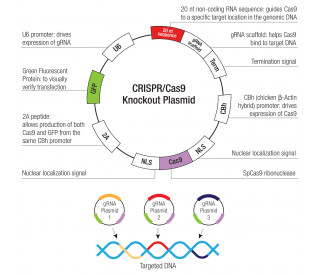
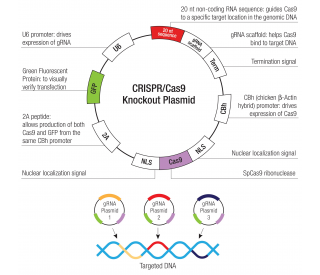
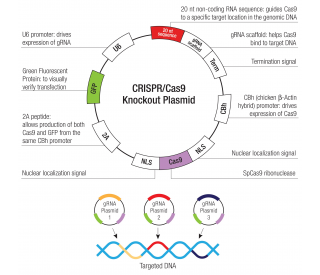
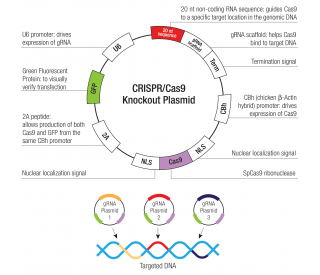
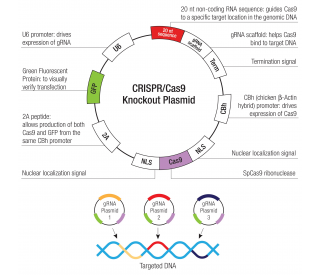
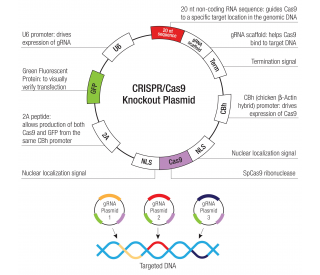



 粤公网安备44196802000105号
粤公网安备44196802000105号